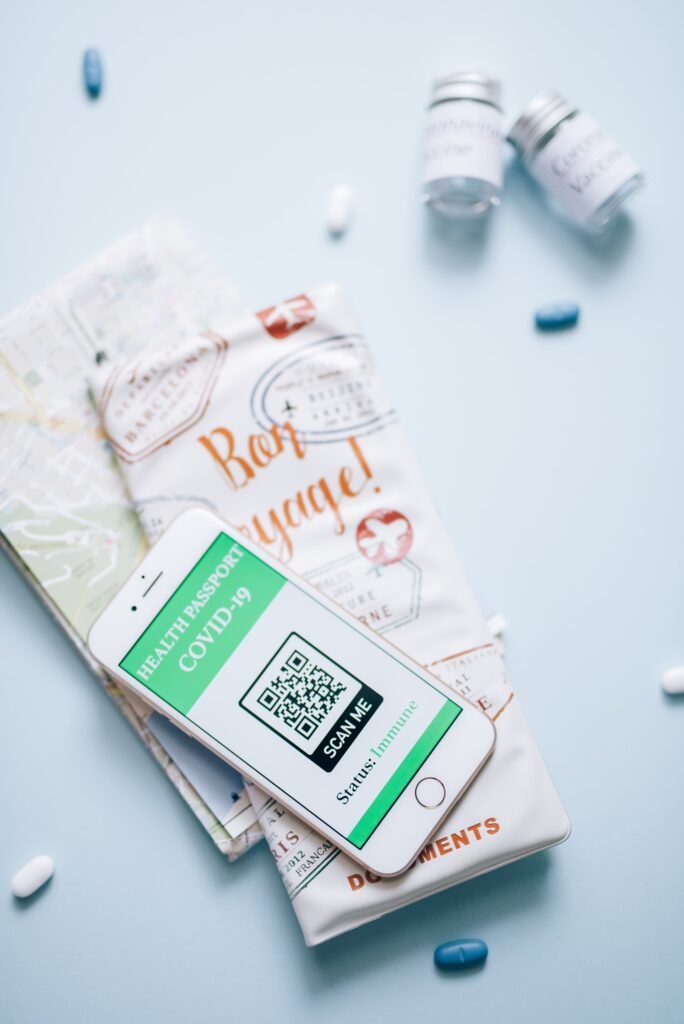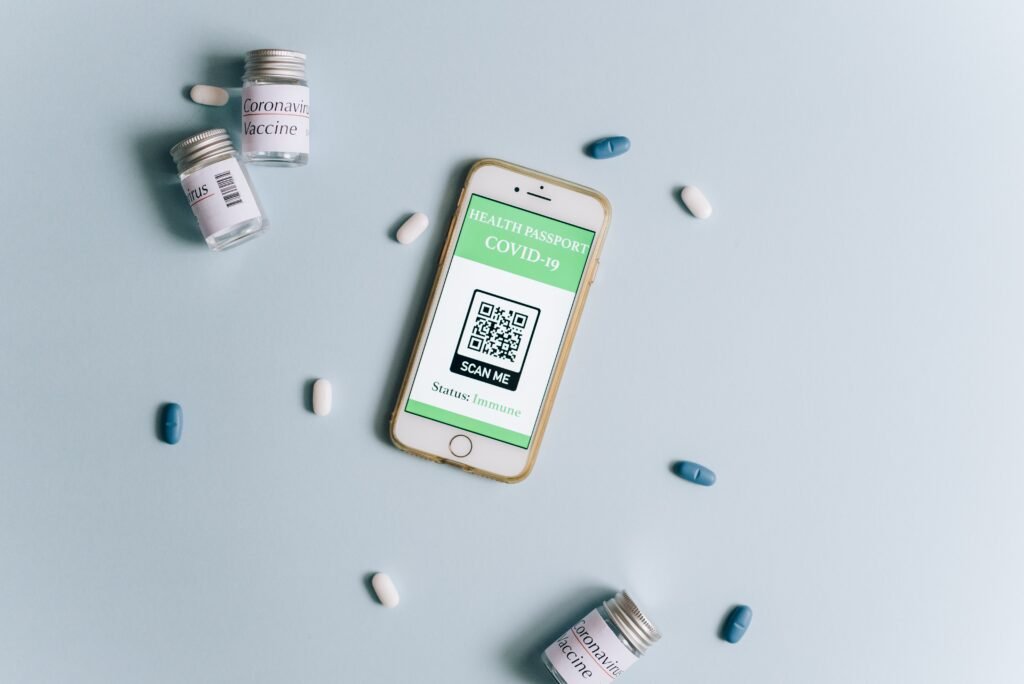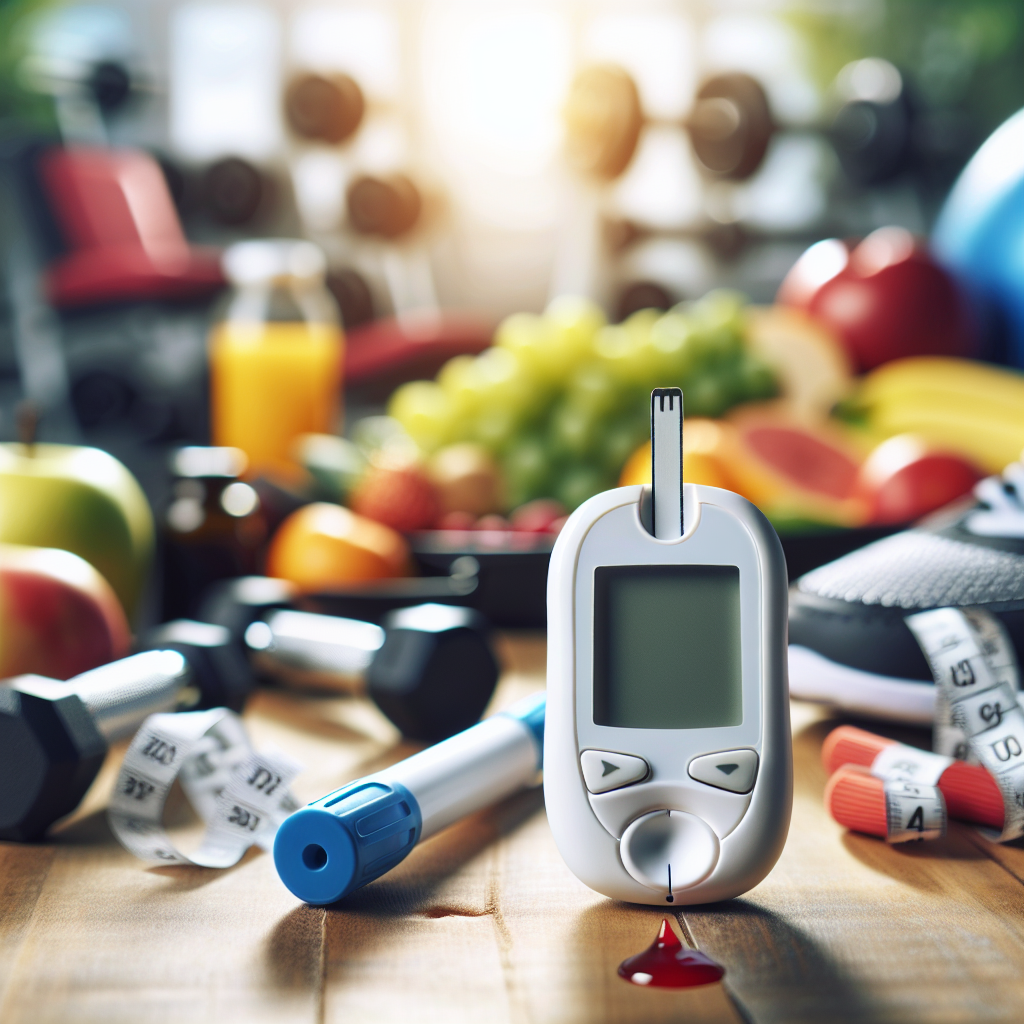Living with diabetes can be daunting, but understanding what is covered for this condition can help alleviate some of the stress. In this article, we will explore the various aspects of diabetes care that are typically covered by insurance, including medication, glucose testing supplies, and preventive services. By gaining insight into what is covered, you can take control of your health and ensure that you have access to the resources needed to manage your diabetes effectively.
Diabetes Basics
Types of diabetes
Diabetes is a chronic condition that affects the body’s ability to regulate blood sugar levels. There are three main types of diabetes: type 1 diabetes, type 2 diabetes, and gestational diabetes. Type 1 diabetes occurs when the immune system mistakenly attacks the cells in the pancreas that produce insulin. Type 2 diabetes occurs when the body becomes resistant to insulin or doesn’t produce enough insulin. Gestational diabetes develops during pregnancy and usually resolves after childbirth.
Causes of diabetes
The exact causes of diabetes are not fully understood, but several factors can contribute to its development. For type 1 diabetes, genetics and certain environmental triggers, such as viruses or exposure to certain chemicals, may play a role. Type 2 diabetes is primarily influenced by lifestyle factors, including poor diet, lack of physical activity, and obesity. Gestational diabetes is believed to be caused by hormonal changes during pregnancy.
Symptoms of diabetes
The symptoms of diabetes can vary depending on the type and severity of the condition. Common symptoms include increased thirst and hunger, frequent urination, unexplained weight loss, fatigue, blurred vision, slow-healing wounds, and recurrent infections. It is important to note that some people with type 2 diabetes may not experience any noticeable symptoms in the early stages of the disease.
Diagnosis of diabetes
Diabetes can be diagnosed through various tests. A fasting plasma glucose test measures blood sugar levels after an overnight fast. An oral glucose tolerance test involves drinking a sugary solution and testing blood sugar levels periodically over a few hours. A random plasma glucose test measures blood sugar levels at any time during the day, regardless of food intake. In addition, a hemoglobin A1c test provides an average blood sugar level over the past two to three months.
Monitoring and Testing
Blood glucose monitoring
Regular blood glucose monitoring is essential for managing diabetes. This involves using a glucose meter or a continuous glucose monitoring system to measure blood sugar levels. By monitoring these levels, you can make informed decisions about medication, diet, and exercise to keep your blood sugar within a target range.
Hemoglobin A1c testing
Hemoglobin A1c (HbA1c) testing is a crucial tool for long-term blood sugar management. It measures the average blood sugar level over the past two to three months. This test is typically performed every three to six months to assess how well your blood sugar is controlled and guide adjustments to your treatment plan.
Urine testing
Urine testing may be used to detect ketones, a byproduct of the breakdown of fat in the body when blood sugar levels are high. Ketones can be harmful and potentially lead to a serious condition called diabetic ketoacidosis. Urine testing can also help monitor kidney function and identify potential complications associated with diabetes.
Continuous glucose monitoring
Continuous glucose monitoring (CGM) systems provide real-time information about blood sugar levels throughout the day and night. These systems use a small sensor inserted under the skin to measure glucose levels in the interstitial fluid. CGM devices help identify trends and patterns in blood sugar levels, allowing for more precise adjustments to medication, diet, and exercise.

Medication and Insulin
Insulin therapy
Insulin therapy is essential for managing type 1 diabetes and may also be required for some individuals with type 2 diabetes. Insulin is administered through injections or an insulin pump and acts as a replacement for the insulin the body is not producing or using effectively. Different types of insulin are available, including short-acting, intermediate-acting, long-acting, and rapid-acting insulin.
Oral medications
For individuals with type 2 diabetes, oral medications may be prescribed to help manage blood sugar levels. These medications work in various ways, such as increasing insulin sensitivity, stimulating insulin production, or slowing down the absorption of sugars in the digestive tract. It is important to take these medications as prescribed and regularly monitor blood sugar levels.
Injectable medications
In addition to insulin therapy, injectable medications called GLP-1 receptor agonists may be prescribed for individuals with type 2 diabetes. These medications stimulate the release of insulin, suppress glucagon (a hormone that raises blood sugar), slow down stomach emptying, and promote satiety. They can be self-administered using a pre-filled pen or syringe.
Insulin pumps
Insulin pumps are small devices that deliver a continuous flow of insulin into the body. They are programmed to deliver specific amounts of insulin based on the individual’s needs. Insulin pumps provide more flexibility in insulin administration and can help individuals with diabetes achieve better blood sugar control.
Diet and Nutrition
Carbohydrate counting
Carbohydrate counting is a method of meal planning that involves tracking the grams of carbohydrates consumed during each meal and snack. Since carbohydrates have the most significant impact on blood sugar levels, understanding and managing carbohydrate intake is essential for diabetes management. By working with a registered dietitian, you can learn how to count carbohydrates and make informed food choices.
Glycemic index
The glycemic index (GI) ranks carbohydrate-containing foods based on how quickly they raise blood sugar levels. Foods with a high GI score cause a rapid increase in blood sugar, while those with a low GI score result in a slower, more gradual increase. By incorporating low GI foods into your meals, you can help regulate blood sugar levels and promote overall health.
Meal planning
Meal planning involves creating a structured approach to meals and snacks that promotes balanced nutrition and consistent blood sugar control. It typically involves consuming a variety of foods from different food groups, including lean proteins, whole grains, fruits, vegetables, and healthy fats. Meal planning can help you maintain stable blood sugar levels, manage hunger, and achieve or maintain a healthy weight.
Portion control
Controlling portion sizes is essential for managing blood sugar levels and preventing overeating. It involves understanding appropriate serving sizes for different types of food and practicing mindful eating. Portion control can help you maintain a healthy weight, prevent blood sugar spikes, and promote overall well-being.

Exercise and Physical Activity
Benefits of exercise
Exercise offers numerous benefits for individuals with diabetes. It can help lower blood sugar levels, improve insulin sensitivity, manage weight, reduce the risk of cardiovascular disease, boost energy levels, enhance mood, and promote overall fitness and well-being. Regular exercise is an integral part of diabetes management and can significantly improve your quality of life.
Types of exercises
There are various types of exercises suitable for individuals with diabetes. These include aerobic exercises like walking, jogging, swimming, cycling, and dancing, which help improve cardiovascular health. Strength training exercises, such as lifting weights or using resistance bands, can increase muscle strength and improve insulin action. Flexibility exercises, like yoga or stretching, can help improve joint mobility and reduce the risk of injury.
Precautions and considerations
Before starting an exercise program, it is essential to consult with your healthcare team. They can provide guidance on suitable exercises based on your overall health, diabetes management goals, and any existing medical conditions or complications. It is important to monitor blood sugar levels before, during, and after exercise and make adjustments to medication, food intake, or activity level as needed.
Creating an exercise plan
To create an exercise plan that suits your needs and goals, consider factors such as your current fitness level, preferences, available resources, and time constraints. Start slowly and gradually increase the duration and intensity of your workouts. Aim for a combination of aerobic, strength training, and flexibility exercises, and include both structured exercise sessions and daily physical activities. Regularly reassess your exercise plan to ensure it remains challenging yet manageable.
Lifestyle Modifications
Stress management
Stress can have a significant impact on blood sugar levels and overall diabetes management. To effectively manage stress, consider incorporating stress-reduction techniques into your daily routine. These may include deep breathing exercises, meditation, yoga, engaging in hobbies or activities you enjoy, spending time in nature, and seeking support from friends, family, or a mental health professional.
Quality sleep
Getting enough quality sleep is crucial for overall health and blood sugar management. Aim for seven to nine hours of sleep each night and establish a regular sleep routine. Create a calm and comfortable sleep environment, practice relaxation techniques before bed, limit exposure to electronic devices, and avoid consuming caffeine or stimulating activities close to bedtime. If you are experiencing sleep difficulties, discuss them with your healthcare provider.
Smoking cessation
Smoking is associated with an increased risk of developing type 2 diabetes and can worsen the complications associated with diabetes. Quitting smoking is a vital step towards better diabetes management and overall health. Seek support from healthcare professionals, join smoking cessation programs, and consider using nicotine replacement therapies or medications to aid in the quitting process.
Limiting alcohol consumption
Alcohol consumption can affect blood sugar control and interact with certain diabetes medications. If you choose to drink alcohol, it is important to do so in moderation and with careful consideration. Limit the amount of alcohol you consume, never drink on an empty stomach, monitor your blood sugar levels, and stay hydrated. Be aware of potential hypoglycemia (low blood sugar) symptoms and take precautions to avoid any adverse effects.

Diabetes Education and Support
Diabetes self-management education
Diabetes self-management education is a vital component of diabetes care. It involves teaching individuals with diabetes the knowledge, skills, and strategies required to manage their condition effectively. Diabetes education programs cover a wide range of topics, including blood sugar monitoring, medication management, meal planning, exercise, coping with stress, and preventing or managing complications. These programs can be conducted individually or in group settings.
Support groups
Support groups provide a safe and understanding environment for individuals with diabetes to share their experiences, exchange information, and receive emotional support. Being part of a support group can help reduce feelings of isolation, increase motivation for self-care, and provide valuable insights into managing diabetes. Support groups may be offered in-person or online, and many organizations and healthcare facilities provide resources to help individuals find a suitable group.
Counseling services
Living with diabetes can be challenging both physically and emotionally. Counseling services or mental health support can help individuals cope with the psychological aspects of diabetes management. Professional counselors or therapists can provide strategies for managing stress, addressing the emotional impact of diabetes, improving motivation and self-esteem, and developing coping mechanisms.
Online resources
The internet offers a vast array of resources for individuals with diabetes. Websites, blogs, forums, and mobile applications provide access to valuable information, educational materials, support communities, meal planning tools, and diabetes management apps. However, it is important to ensure the reliability of online sources and consult with healthcare professionals for personalized guidance and advice.
Managing Complications
Foot care
Diabetes can lead to nerve damage and poor blood circulation, which increases the risk of foot problems. It is essential to prioritize foot care by regularly examining your feet for any signs of injury, wearing comfortable and well-fitting shoes, keeping your feet clean and moisturized, and avoiding activities that may cause foot trauma. Seeking immediate medical attention for any foot issues is crucial to prevent severe complications.
Eye care
Diabetes can cause damage to the blood vessels in the eyes, leading to a condition called diabetic retinopathy. Regular eye exams are crucial to detect any early signs of eye problems. Additionally, managing blood sugar levels, controlling blood pressure and cholesterol, and avoiding smoking can help reduce the risk of developing diabetic eye complications. If detected early, diabetic retinopathy can be treated to prevent further vision loss.
Kidney care
Diabetes can damage the kidneys and lead to kidney disease, known as diabetic nephropathy. Regular monitoring of kidney function through blood and urine tests is essential. Managing blood sugar levels, controlling blood pressure, and maintaining a healthy lifestyle can help reduce the risk of developing kidney complications. It is also important to limit the intake of certain medications that can be harmful to the kidneys.
Heart health
Individuals with diabetes are at an increased risk of developing heart disease. To promote heart health, it is important to manage blood sugar levels, control blood pressure and cholesterol, maintain a healthy weight, engage in regular physical activity, follow a heart-healthy diet, and avoid smoking. Regular check-ups, medication management, and lifestyle modifications can help reduce the risk of cardiovascular complications associated with diabetes.

Preventive Measures
Regular check-ups
Regular check-ups with your healthcare team are crucial for managing diabetes and preventing complications. These appointments may include monitoring blood sugar levels, assessing overall health, adjusting medication dosages, conducting necessary tests, reviewing lifestyle habits, and addressing any concerns or questions you may have. By maintaining regular contact with your healthcare provider, you can stay on top of your diabetes management plan.
Vaccinations
Vaccinations are an important preventive measure for individuals with diabetes. Vaccines such as the flu vaccine and pneumococcal vaccine can help protect against infections that can be more severe in people with diabetes. It is recommended to discuss vaccination schedules and options with your healthcare provider to ensure you are up to date with the appropriate immunizations.
Blood pressure control
High blood pressure is a common complication of diabetes that can increase the risk of heart disease and kidney damage. Regular monitoring of blood pressure levels and taking medication as prescribed are important for blood pressure control. Lifestyle modifications such as reducing sodium intake, increasing physical activity, maintaining a healthy weight, and managing stress can also help manage blood pressure levels.
Cholesterol management
Maintaining healthy cholesterol levels is essential for reducing the risk of cardiovascular complications in individuals with diabetes. A combination of medications, lifestyle modifications, and a heart-healthy diet can help manage cholesterol levels. Limiting the intake of saturated and trans fats, increasing consumption of unsaturated fats, increasing fiber intake, and regular physical activity are key components of cholesterol management.
Financial Assistance
Health insurance coverage
Having adequate health insurance coverage is important for managing diabetes and accessing necessary medical services, medications, and supplies. It is essential to carefully review your insurance plan to understand what is covered, including medications, doctor visits, hospital stays, and diabetes supplies such as glucose meters, test strips, and insulin.
Medicare and Medicaid benefits
For individuals aged 65 and older or those with certain disabilities, Medicare provides health insurance coverage that can help manage diabetes-related expenses. Medicaid is a state and federal program that provides healthcare coverage to individuals with low income, including those with diabetes. These programs can help cover medical services, medications, diabetes supplies, and diabetes education for eligible individuals.
Prescription assistance programs
Prescription assistance programs are available to provide financial support for individuals who may have difficulty affording the cost of diabetes medications. These programs, offered by pharmaceutical companies or nonprofit organizations, help individuals access necessary medications at reduced or no cost. Eligibility criteria and application processes vary, so it is important to research and contact specific programs for more information.
Supplemental Security Income
Supplemental Security Income (SSI) is a federal program that provides financial assistance to individuals with limited income and resources who have disabilities, including those with diabetes. SSI benefits can help cover living expenses, healthcare costs, and other essential needs. To determine eligibility and apply for SSI, individuals can contact the Social Security Administration or visit their website for detailed information and assistance.


